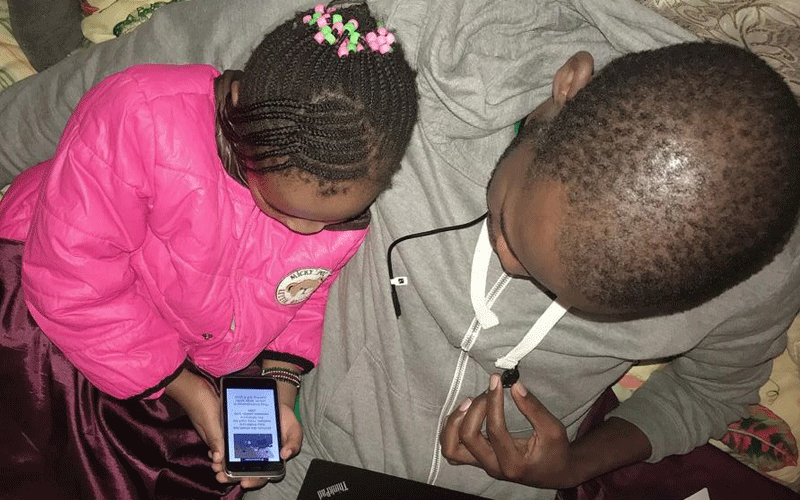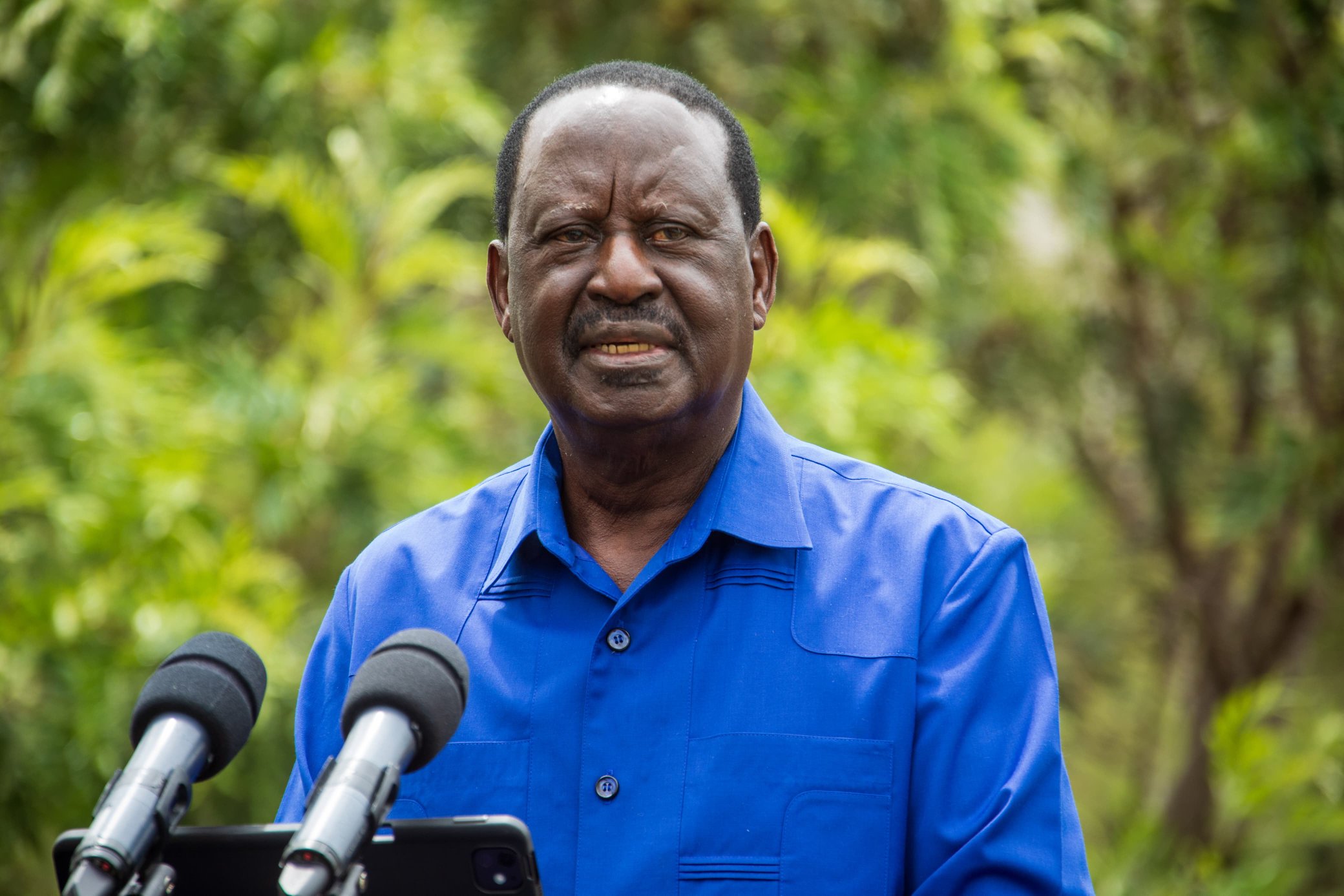Librarian recycles phones to offer e-Learning content

With Laibu Mkononi, Yusuf Ganyana wants students to access education in informal settlement and far-flung areas.
Figuring out what to do with old gadgets, whether a smart phone or printer, or internet router when they cease to be of value? Do not bother sending them to the recycle bin anymore.
Yusuf Ganyana, 35, has found a worthy cause with the devices. The founder of Laibu Mkononi reconditions them to provide e-learning content to learners in informal settlements and far-flung areas where access to electricity and internet connectivity is a mirage.
Through Laibu Mkononi (Sheng and Kiswahili for Library in your hands) concept, learners do not need internet connectivity to access content.
They only need a device loaded with content to enjoy lessons in the comfort of their homes.
With schools closed due to Covid-19, learners are struggling to access content online and in areas without internet connectivity, children have been forced to stay home as their peers enjoys lessons online.
Ganyana says remote education is inevitable, but availing equipment is a tall order.
The urge to empower learners through e-learning content and printed revision copies keeps him going.
Revision copies
“Other than reducing carbon footprint, we are trying to restore the environment in a good way,” he says, referring to the process of reconditioning e-waste.
Three months ago, Ganyana, a librarian at the Kenya National Library Services-Kibera satellite branch, had experienced first-hand how patrons who thronged the centre struggled to access content due to the ongoing pandemic measures.
“I just wanted to help. I find joy when children access learning materials whether physical or online.
I wanted to reach the vulnerable and the disadvantaged in our community,” he adds.
So far, the initiative is serving more than 23 learners with others as far as Moyale county where internet access is a challenge.
In addition, the initiative has also offered over 30 printed revision copies to learners.
Recently, through well-wishers, Ganyana sent some 10 smart phones preloaded with curriculum content to Moyale Community Library, to the elation of the entire community, staff and learners.
The devices have become helpful as children now access education content easily, said Gollo Waqo, an official at Moyale Library.
“Closure of learning institutions, libraries has made communities face mounting and disproportionate challenges in accessing learning materials, especially during this period of Covid-19. We are now seeing light with this project,” added Waqo.
E-waste has ballooned in the city in the past decade due to rising mobile phone penetration and a burgeoning middle class, something that inspired Ganyaya, a diploma in computer studies graduate from the University of Nairobi, to set up
While waiting to join university after sitting for Kenya Certificate of Secondary Education at Jamhuri High School, Nairobi, Ganyana enrolled for an International Computer Driving License course at Institute of Advanced Technology.
“My classes used to run from 8am to 10am, but I prolonged my stay to gain more knowledge. With time, I started helping old people who came to learn more about computers,” he recalls.
How it started
Three years later while working for LG Electronics, he founded Techeck Limited, a side hustle outfit that dealt with computer repair and maintenance.
Between 2010 and 2016, he served as the IT Manager Software Installation at LG, quitting his job in November and rejoined his friends at Techeck.
In April the following year, when his pet business idea did not pick up, he looked for a job to make ends meet.
He would be hired by the Kibera Community Library as a librarian.
“I rarely read, but with time I came to enjoy reading after interacting with many books at the library,” he remembers.
His first initiative, christened ‘Raising a Sun,’ was a hit. Patrons had to read a book, understand it, and then answer at least three questions from it.
Those who passed gained access to the computers in the library.
He would further replicate this initiative by training around 203 youths on basic computer skills, entrepreneurship and public speaking skills, especially class eight or form four leavers who frequented the library free of charge.
Early this year, before Covid-19, Kibera Community Library and Kibera Integrated Community Self-Help Programme (KICOSHEP), World Food Program and Fiverr, partnered through a World Food Programme EMPACT programme —a digital empowerment project aimed at helping the youth get online jobs.
Under the banner, Tech for Livelihoods, the programme, training about 80 youths, was cut short by the pandemic. Though it continued virtually, many people lacked internet bundles and gadgets to access internet. I started lending devices I had repaired from my workshop, Ganyana explains.
That is how the idea of Laibu Mkononi was born.
“I partnered with the library to access content. I also pick content from public domain and some free sites such as e-reader books for story books, Khan Academy Kids, Duolingo among others.” he says.
For safety, Ganyana, has installed parental control that helps parents monitor what learners access.
Mary Kinyanjui, head librarian Kenya National Library Services, Kibera Community Library says the partnership has kept learners engaged “With this programme, children in the slums are busy, reducing their chances of engaging in illegal activities during this period,” she noted.
Through his work around Digital Literacy programmes, in March 2020, he was among five African librarians who participated in the Initiative for Young African Library Innovators 2020(IYALI 2020) for emerging public library innovators.
Ganyana’s biggest obstacle is on access to content and devices. He says, he is ready for partnerships with content generators and providers.
“My wish is to cover the entire country in a few years to come, and contribute in filling the e-learning gap,” he concludes.








